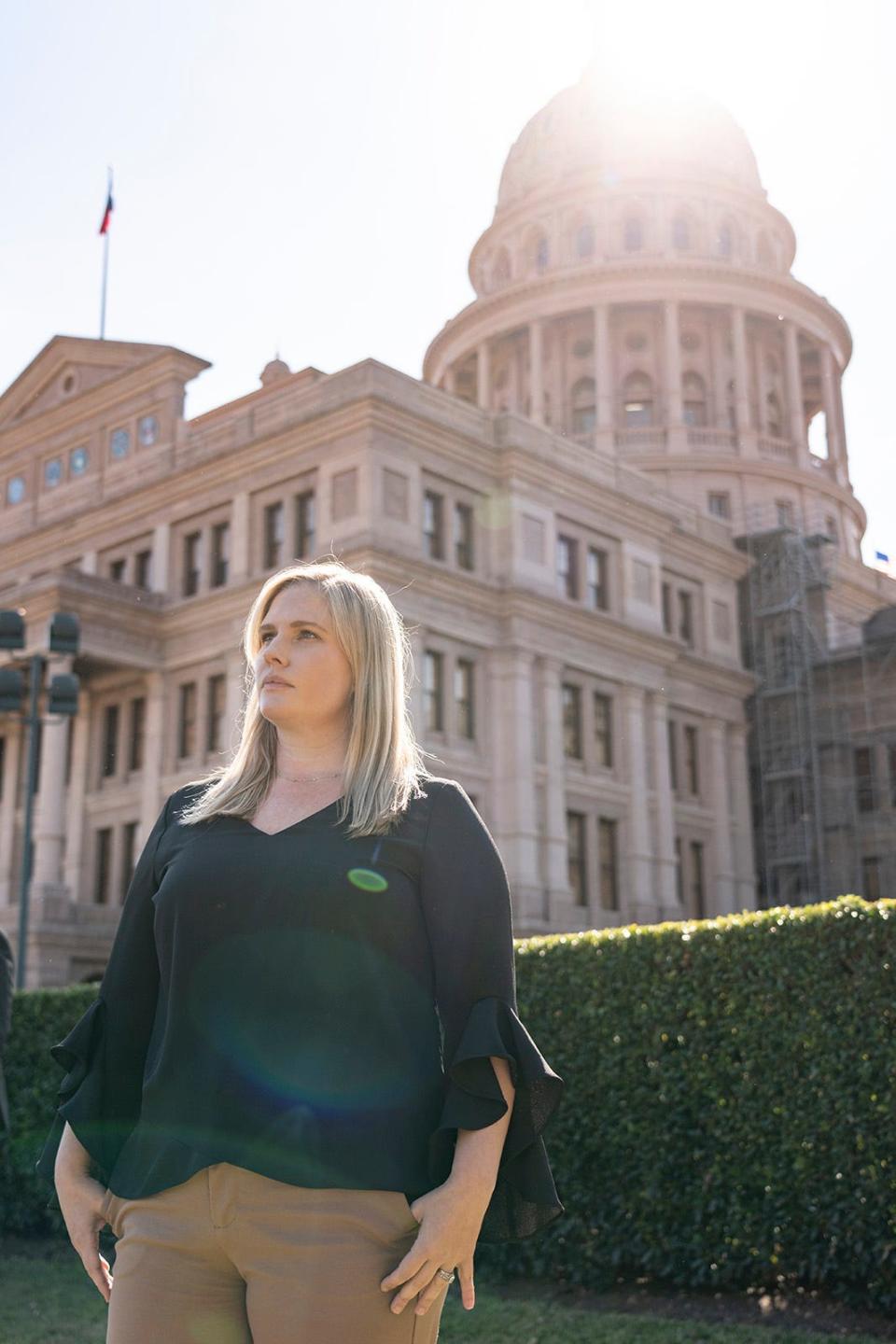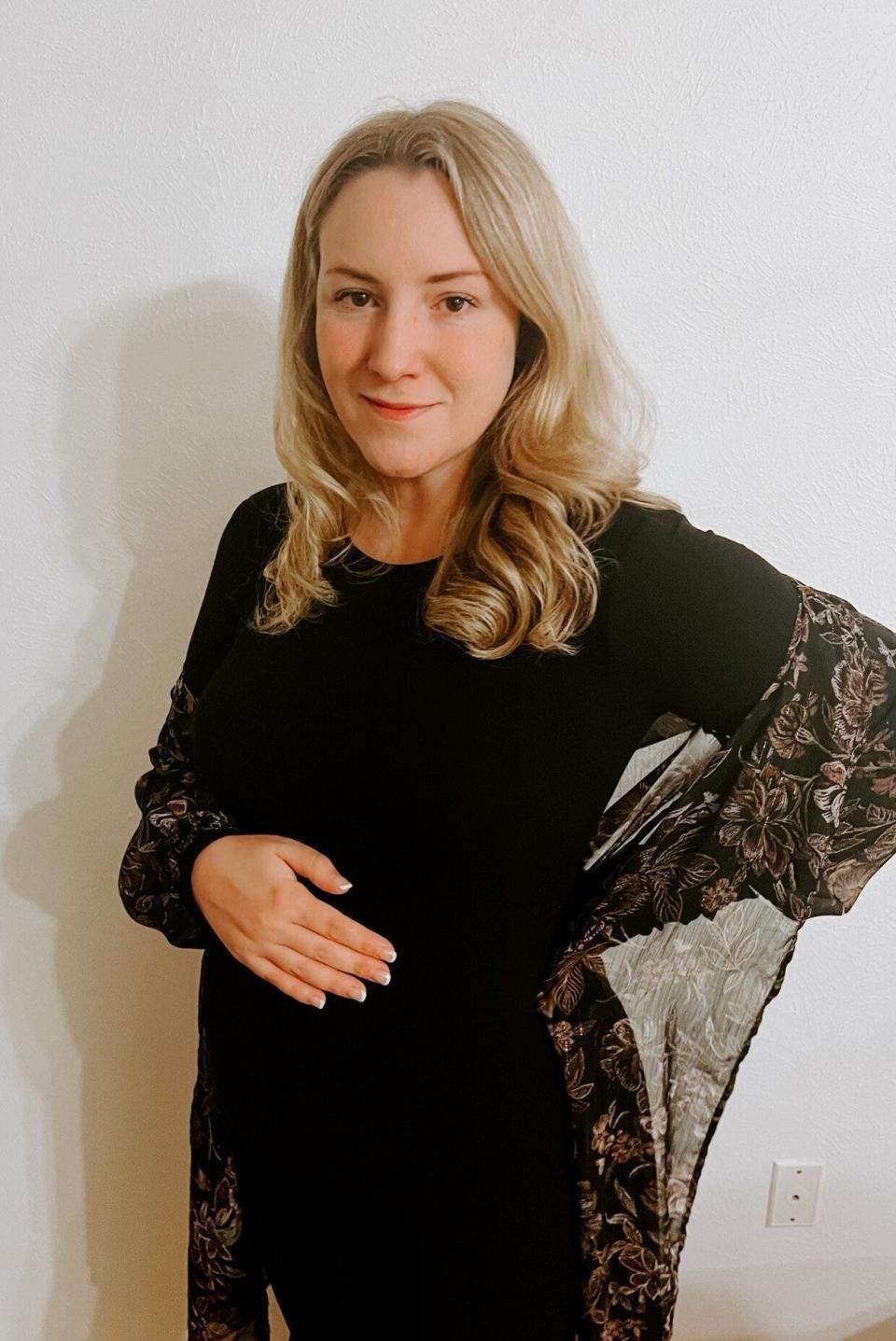Dear Texas, abortions shouldn't be a dying wish. Any woman can be Kate Cox. | Grumet
It struck me at the time as odd advice.
“Don’t watch those pregnancy shows on TLC,” the instructor told our childbirth class, a roomful of a half a dozen couples, as my husband and I were expecting our first baby 18 years ago.
She didn’t want us to see something that might cause us to worry. But I thought: Shouldn’t we know what we might face in this journey?
For all the joy of bringing a baby into the world, pregnancy and childbirth entail a slew of risks we don’t like to discuss. Hemorrhaging. Torn muscles. Ripped tissue, repaired with stitches. An emergency cesarean section — major abdominal surgery — complicating future deliveries. Higher risks of kidney stones, high blood pressure or diabetes spiking during pregnancy. An undertow of anxiety and depression.

Yet the Texas lawmakers who passed our state’s sweeping abortion bans in recent years didn’t want to contemplate those risks, and indeed shrugged them off. Texas law acts as if there is no hardship in carrying a pregnancy to term, and certainly no valid reason to end a pregnancy early, unless you’re about to die.
Abortion is allowed only when the pregnant patient’s life or “a major bodily function” is endangered — but just ask the nearly two dozen plaintiffs in the Zurawski v. Texas lawsuit how easy it is to get that intervention when your doctor and their hospital fear criminal prosecution and endless litigation if they make that call too soon.
And if you’re not about to die? You could be Kate Cox, told by state Attorney General Ken Paxton and the Texas Supreme Court that you must continue to carry a fetus with a fatal condition, rack up more visits to the emergency room, push your luck with a list of complications, then go through the physical ordeal of giving birth — because unless you are dying, all these other things are necessary.
This is Texas protecting life. Even if your child has a severe genetic abnormality and might be stillborn or won't survive long outside the womb. The law is the law.

Cox’s heartbreaking experience, culminating in her decision to terminate her ill-fated pregnancy out of state, put the callousness of Texas’ abortion bans into stark relief. But she’s hardly the only one caught in this cruel bind.
Austin women Kaitlyn Kash and Taylor Edwards have shared their similarly devastating experiences, along with others across the state. And I’m haunted by the thought that other Texans are quietly grappling with these impossible situations, fearful of making their plight public.
These cases don’t represent glitches in the law. They illustrate a core fallacy with Texas’ abortion bans, that pregnancies are either healthy or imminently deadly, that the line between the two is clear, that no meaningful risks to the patient’s health fall in between.
They demonstrate the danger of lawmakers setting the threat level that childbearing Texans must accept, instead of leaving decisions about each pregnancy to doctors and patients, to those with the expertise and those who must live with the outcome.
If you read the Texas Supreme Court’s recent ruling in the Cox case, you might think we live in a more sane world.
“The law leaves to physicians — not judges — both the discretion and the responsibility to exercise their reasonable medical judgment, given the unique facts and circumstances of each patient,” the court wrote, putting its own emphasis on “physicians.”
Really? We all saw this unfold in real time. It was nine judges, not a Texas doctor, who denied Cox’s request for an abortion. Nine judges who parsed the wording of the law, not the doctor who knew Cox’s case and assessed the potential damage to her health.
“No one disputes that Ms. Cox’s pregnancy has been extremely complicated,” the court wrote. “Some difficulties in pregnancy, however, even serious ones, do not pose the heightened risks to the mother the exception (allowing abortion) encompasses.”
Words like “complications” and “difficulties” paper over the pain of a failing pregnancy. They don’t convey the panic of return trips to the emergency room, or the risk of uterine scarring that could interfere with a future pregnancy, or needless trauma of undergoing childbirth for a child who won’t make it.
The ordeals of Cox and other women have rightly horrified many Texans. We can’t ignore the risks that Texas law places on them. Neither should lawmakers.
Grumet is the Statesman’s Metro columnist. Her column, ATX in Context, contains her opinions. Share yours via email at bgrumet@statesman.com or via Twitter at @bgrumet. Find her previous work at statesman.com/news/columns.
This article originally appeared on Austin American-Statesman: Dear Texas, abortions shouldn't be a dying wish. Any woman can be Kate Cox

